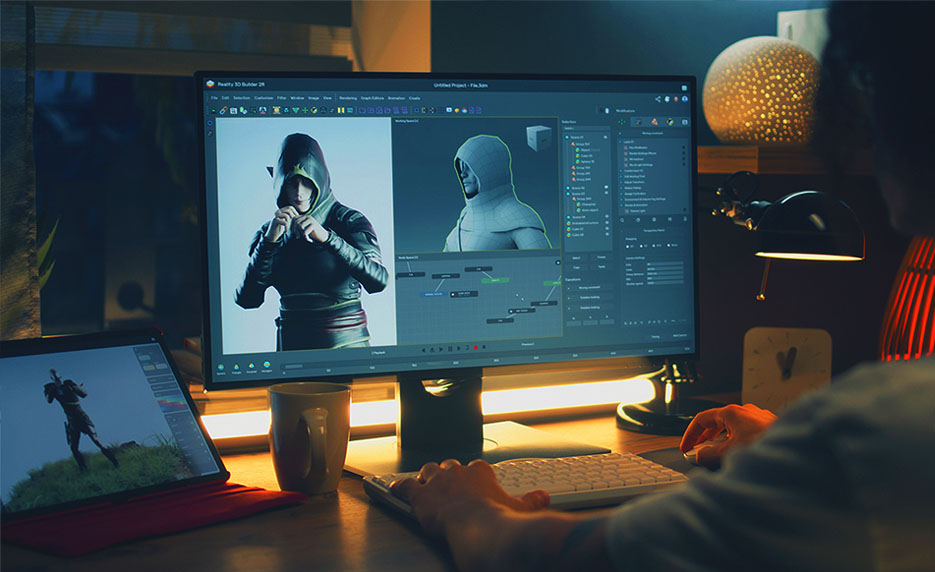Helping you to become a better game designer!
So what exactly is a game designer?
That’s actually a good but a bit complicated question because a game designer is more of a group term for many different roles, all falling under the same flag of “Game Design”.
People outside of the games industry tend to have misconceptions about what a game designer actually is and what they do, because they throw all the different possible kinds of game designers into one role. As a reference, not every doctor in the world is an oncologist.

The many flavors of game design
In general terms, game design can be split up into several sub-design fields:
- Feature (or system) designers
- Level (or world) designers
- Story (or quest) designers
- User interface (or user experience) designers
- And more…
Each of these sub-design fields can then also be split into further smaller segments if and when the game studio grows bigger. Essentially people tend to specialize in different fields over time. Even though a lot of the general skills a game designer has are needed for all sub-fields, someone usually becomes an expert in one specific design field.
I myself went from specializing in level design, then onto multiplayer systems design and then later in single-player mechanics, all on different projects. The smaller the development team, the higher the chance you might find a game designer who does everything. Because they have to, not necessarily because it’s desirable or efficient.
Phases of game development
What a game designer does also changes over the course of a game project and even depends on what type of game it actually is. A game designer tends to do different things on a sequel compared to an all new game, for example.
In general terms, a game designers’ tasks are aligned with the phases of game development:
- Concepting
- Prototyping
- Vertical Slice
- Production
- Finalizing
- Post-Launch
During concepting a game idea is generally molded into a creative pitch. Game designers help shape this pitch from a game design perspective to really sell the game to externals. During prototyping they design the mechanics/worlds to test out the pitch in a playable fashion, while working closely together with people who code, model and animate the game. At the vertical slice stage they further develop the mechanics/worlds of the game and define in-depth what makes them tick, all the while still working with other disciplines like artists, programmers, etc..
During production they oversee their mechanics as they are implemented in the game content. During finalizing they are usually leading the charge in playtesting, tweaking and iterating, making sure the game is as good as it can be. And finally after launch they help find, analyze and fix issues the game has.
Do game designers actually build anything themselves?
Game designers definitely write a lot of documents in order to get their concepts/designs translated to other disciplines like coders and artists. But they actually do get “hands-on” a lot too. Most games today work with tools that allow them to build the worlds in block form or ‘script’ mechanics to try out in the game. Designers use these tools a lot.
For example during prototyping game designers are building a lot of things themselves, as a playable example is always 100x better than any written document to get an idea across to others. During production they build less and less as the other expert artists, coders etc. take over. A game designer’s role becomes more of ‘champion of a part of the game’, making sure the specific game mechanic or world under their wing keeps working as intended.
So in a nutshell?
If someone is a game designer it can mean a lot of different things, depending on a lot of variables. But a game designer is someone who is responsible for designing a sub-part of a game, defining in-depth how that part works and plays, convincing others it’s a good idea to build, prototyping it, nurturing it into its final state while working with other disciplines and ultimately being responsible for making that part as fun for the player as possible… Easy right?
Want to learn more about what type of game designer you want to be? Book a 1-on-1 coaching session where we deepdive into your skills and potential.
